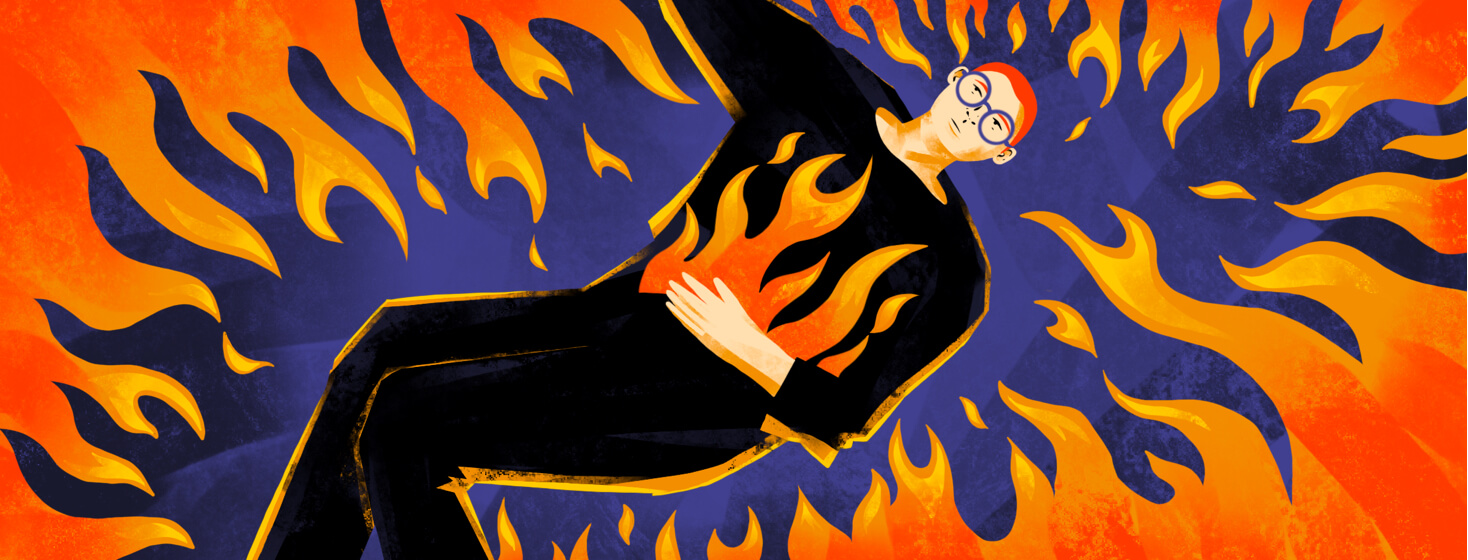Cystic Fibrosis and Crohn's Disease
Doctors and researchers speculate that there may be a relationship between Crohn’s disease and cystic fibrosis (CF). However, research on the link is still limited at this time.1
What is Crohn's disease?
Crohn’s disease is a type of inflammatory bowel disease (IBD). It causes inflammation in your digestive tract. This inflammation can lead to stomach pain, severe diarrhea, weight loss, and malnutrition. In some cases, Crohn’s can lead to life-threatening complications.2
Everyone has harmless bacteria in their intestines. The immune systems of people with Crohn’s mistake these bacteria for foreign invaders and go on the attack. This immune response causes inflammation.2
How are Crohn's and cystic fibrosis connected?
Researchers are aware of the link between Crohn’s disease and cystic fibrosis. Some studies have shown people with CF are up to 17 times more likely to develop Crohn’s than those without CF. However, researchers still do not know exactly how or why Crohn’s and CF are related.1
One study found that a mutation that is common in people with CF may be an indicator for Crohn’s. This mutation is called ΔF508. About half of all people with CF have it. The mutation affects a protein that has important jobs all over the body, including the intestines. Researchers found that people who had CF and the ΔF508 mutation were more likely to develop Crohn’s.3
How Crohn's manifests in people with CF
Because people with CF can have many symptoms, it can be difficult to diagnose Crohn’s. It is common for doctors and patients not to realize Crohn’s symptoms are not just part of CF.4
Common symptoms of Crohn’s disease in people with cystic fibrosis are abdominal pain and weight loss.1 Other symptoms of Crohn’s in children with CF is being smaller than average. One study found that children with CF and Crohn’s were shorter and weighed less than children with only CF.5
Recommended treatment methods to date
The goal of treating Crohn’s is disease control and remission. For most people, doctors use a combination of drugs to treat Crohn’s. Usually, a type of steroid called a corticosteroid is used to get the disease under control.2
After this, a drug that impacts the immune system is used to maintain remission. This could be an immune system suppressor or a biologic. These drugs work by targeting the immune system, which is responsible for your body’s inflammation response.2
For people with CF and Crohn’s, taking medicine that weakens the immune system can be risky. These medicines can increase the risk of infections all over the body, including the lungs. Unfortunately, it can also be harmful to take corticosteroids over the long term.1
Doctors still do not know the best way to treat Crohn’s disease in people with cystic fibrosis. Some research has shown that people with CF can safely take an immune system suppressor to treat Crohn’s. If you do this, you should be closely monitored for any complications.1
There are other treatments for Crohn’s that do not use medications. Your doctor may use nutritional therapy to control your Crohn’s. In nutritional therapy, all your food is replaced with a nutrient-rich formula. You may drink the formula or receive it through a feeding tube or IV. This treatment ensures you get enough nutrients and allows your bowel to rest, which reduces inflammation.2
You may find that certain foods or stress trigger Crohn’s flares. Your doctor may make recommendations for your diet that eliminate triggers. Also, you may want to use stress control techniques like meditation.2
How to get help
If you experience symptoms of Crohn’s, there are steps you can take. A good first move is to reach out to your regular doctor. They should be able to recommend a specialist called a gastroenterologist. You may want to look for a gastroenterologist who specializes in IBD. Some questions you may want to ask are:2
- What are the possible causes for my symptoms?
- What types of tests might I need to confirm a diagnosis?
- Should I make any lifestyle changes?
- What are my treatment options?
If you meet with a gastroenterologist, make sure to explain your full medical history. This will help them better understand your scenario, and how best to treat you safely. If you are diagnosed with Crohn’s, your doctors can make a treatment plan that meets your specific needs.1
Do you or your loved one with cystic fibrosis also have Crohn's disease?

Join the conversation